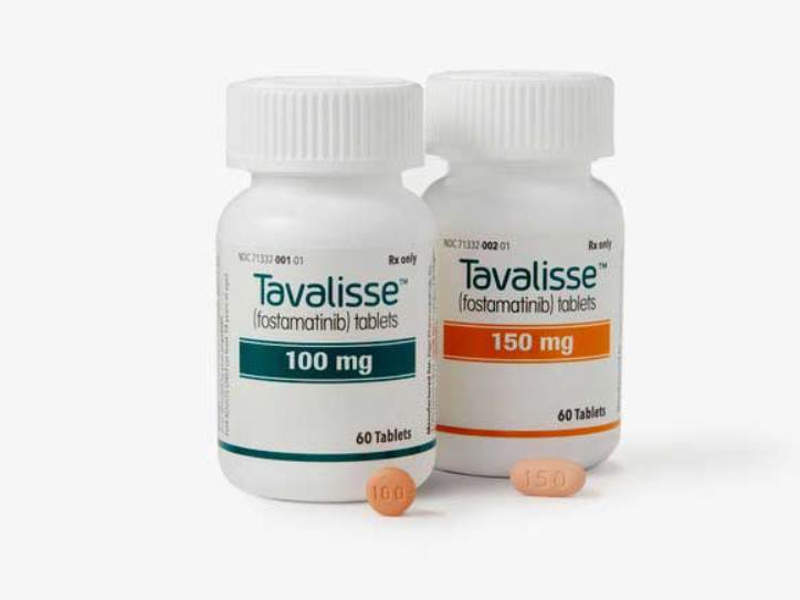COVID-19 Drugs: Fostamatinib Being Advocated To Be Repurposed To Treat Acute Lung Injury In COVID-19 By Harvard And Imperial College Researchers
Source: COVID-19 Drugs and Fostamatinib Jul 02, 2020 5 years, 7 months, 3 weeks, 2 days, 2 hours, 58 minutes ago
COVID-19 Drugs: Fostamatinib, an FDA-approved monoclonal antibody that is a spleen tyrosine kinase inhibitor (SYK), was studied by researchers from Harvards’ Broad Institute, Imperial College’s Hammersmith Hospital, Brigham and Women’s Hospital and Harvard Medical School for possible use to reduce the levels of mucin-1, a molecule associated with acute lung injury and acute respiratory distress syndrome (ARDS). Most patients with COVID-19 who are in severe stages typically develop ARDS.

The research findings have been published in the preprint server bioRvix and are yet to have been peer-reviewed.
https://www.biorxiv.org/content/10.1101/2020.06.30.180380v1
Typically, mucin-1 is a transmembrane
glycoprotein secreted from most of the mucosal epithelium. It is an essential protein in restricting the size of the airway passage. Goblet cells can rapidly secrete mucus which is exocytosed to form a mucus layer over the epithelial lining of the airways when stimulated by specific triggers.
Healthy individuals normally possess mucus in the airways to protect the lungs from inhaled bacteria, fungi, and viruses, as well as toxins and dust particles, but too much mucus can sharply reduce the lumen available for air to pass.
Normally this is associated with more frequent and prolonged infections, impairment of lung function, and a higher number of deaths after a respiratory infection. Also high mucus production is linked to lung disease and death in conditions like cystic fibrosis and chronic obstructive pulmonary disease (COPD).
The researchers embarked on a study to find drug candidates that could reduce the levels of this protein by dose-dependent reduction of mucin-1 and had a favorable toxicity profile so that they could be repurposed to treat the condition in COVID-19 patients.
The drug candidates also had to display a non-transcriptional mechanism of action, since transcriptional inhibitors like vitamin D agonists, did not work in clinical situations.
Against a database of over 3,700 compounds, the researchers narrowed down four compounds, which reduced mucin-1 production but did not affect mRNA nor produced toxic effects.
The study team identified the prodrug fostamatinib, which is rapidly converted to the active metabolite R406, as a potential compound for repurposing. They found that this decreased the levels of mucin-1 from epithelial cells while preserving cell viability. The control molecule was the bromodomain inhibitor JQ1, which completely suppresses transcription of mucin 1.
Past studies on animal models have shown this drug to be effective in severe inflammatory conditions such as immune glomerulonephritis or vasculitic disorders. It is currently undergoing phase II trials to evaluate the effect of SYK suppression in an inflammatory renal disorder called IgA nephropathy.
Fostamatinib was approved for the treatment of chronic immune thrombocytopenia and has also been used safely to treat over 3,000 patients with rheumatoid arthritis. Its safety profile further provides an advantage to researchers looking for COVID-19 therapies.
The active metabolite o
f fostamatinib is R406. is This is an SYK inhibitor that acts by dephosphorylation of integral membrane proteins, after which they are removed from the plasma membrane by endocytosis. Apart from mucin-1, it also regulates the abundance of the gel-like mucin MUC5AC in the human nasal epithelium, and human mucin-producing cells. And finally, the deletion of the Muc1 gene in airway epithelial cells in rats and human lung epithelium causes reduced hypersecretion of mucin, which in turn protects against lung injury.
The metabolite R406 was found to deplete mucin from the plasma membrane and redistribute a part of it to the inside of the cell, mostly around the nucleus. Earlier studies showed that SYK inhibition suppresses both local and remote lung injury.
The study team admitted fostamatinib disodium or R788, a methylene phosphate prodrug of R406, that can be orally ingested, to mice and studied the lung tissue. T
In the study the researchers found that ischemic-reperfusion injury caused acute lung injury, which in turn led to high levels of mucin-1 in the lung epithelium. They concluded that this is “consistent with previous reports that excess MUC1 is injurious.”
But when the study team examined the lung tissue of mice treated with R788, they found significantly reduced mucin-1, as seen by immunohistochemical imaging and quantitative image analysis.
The research thus shows that R406 could be used to reduce mucin-1 levels in the lung epithelium in patients with acute lung injury. This molecule powerfully inhibits SYK, which is a protein tyrosine kinase in the cell cytoplasm, mediating the expression of multiple inflammatory chemicals. Most leukocytes express SYK, and it plays a role in immune signaling pathways, whether through B cell receptors or Fc receptors.
The protein SYK is also involved in cellular adhesion, mediates recognition of antigens by innate immune cells, and in the activation of platelets. Its key role in immune regulation means that many drugs target this enzyme, including over 50 SYK small molecule inhibitors to treat a range of conditions, from asthma to arthritis.
Studies have shown that KL-6/MUC1 levels are reliable prognostic biomarkers of disease severity in patients with COVID-19-related acute lung injury.
Dr Anna Greka, MD, PhD from Brigham and Women’s Hospital and Harvard Medical School, Boston, the lead author told Thailand Medical News, “Given the roles of excess KL6/MUC1 in ALI and ARDS, we propose that Fostamatinib may confer benefit in patients with COVID-19 lung injury.”
The team is already arranging for future clinical trials involving the drug.
For more on
COVID-19 Drugs and Fostamatinib, keep on logging to Thailand Medical News.
